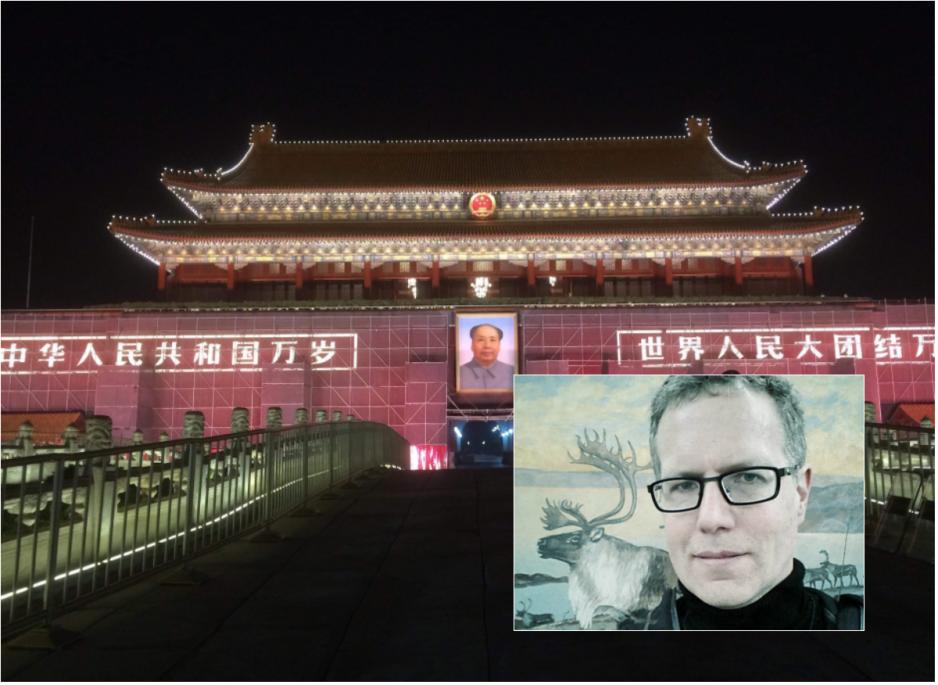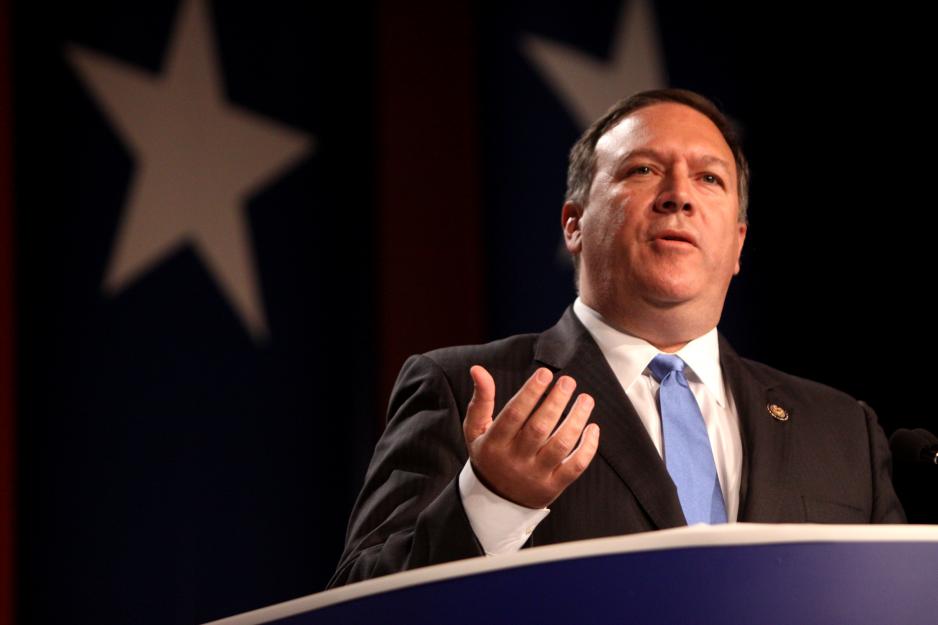China will seek to treat the Pompeo speech as simply ‘road damage’ to be routed around

"Signs have begun to appear that if China feels that it is going to pushed out of the ‘clubhouse’, meaning the Arctic Council and related organizations, it will simply build its own clubhouse, in keeping with traditional great power behaviour", Marc Lanteigne tells High North News. Photo by: Marc Lanteigne
Signs have begun to appear that if China feels that it is going to pushed out of the ‘clubhouse’, meaning the Arctic Council and related organizations, it will simply build its own clubhouse, in keeping with traditional great power behaviour, warns Marc Lanteigne. He worries what will happen if the Arctic Council can't stand up to this level of outside interest.
In the aftermath of the Ministerial meeting in Rovaniemi, China has launched back at Pompeo and the US: "If Washington is worried about territorial claims in the Arctic, it should turn to other Arctic Council members", writes China Daily.
"The official response from Beijing has been very measured, with the Chinese Foreign Ministry pointing to the progress the country has made in developing regional cooperation in scientific and environmental issues, as well as economic development", says Marc Lanteigne, an expert in the politics and foreign policy of China, to High North News.
"The initial signs are that China will seek to treat the Pompeo speech as simply ‘road damage’ to be routed around", he adds.
Lanteigne is teaching in Political Science, including security studies and international relations theory. Research in international relations, Chinese, East Asian and Russian politics and foreign policy, as well as Arctic politics and Asia-Arctic diplomacy at the University in Tromsø, Norway's Arctic University,
Contrast
He wrote an analysis on China's Arctic policy just a few week ago, and does not see any significant change in tone after the events in Rovaniemi.
"But it was good timing for China that the Arctic Circle forum in Shanghai took place right after the Arctic Council Ministerial in Rovaniemi, as it allowed China to showcase its specific interests in the far north, and to press the idea of partnerships and mutual problem-solving, creating an atmosphere of inclusiveness in sharp contrast to Pompeo’s calls for a more isolated Arctic", he says.

Gjenåpningen av USAs konsulat i Nuuk reflekterer USAs forpliktelse til å styrke samarbeidet med Grønland og Danmark, uttalte USAs utenriksminister Mike Pompeo i en pressmelding onsdag. Foto: Gage Skidmore.
Lanteigne fins it unlikely that Beijing will be dissuaded from building new Arctic linkages, especially with Russia, based on what appears to be a hardening of US policy in the region.
Rules and norms
Beijing is very sensitive to being excluded from emerging dialogues in the region
"Because it involves two sets of issues, rules and norms. In regards to rules, Beijing has stressed on many occasions, including in its Arctic White Paper published in January last year, that it does not seek to challenge the legal frameworks or the sovereignty of the region. China is not claiming to be an Arctic state, and has demonstrated much enthusiasm in participating in various Arctic regimes ranging from the Arctic Council to UNCLOS to the Polar Code and the new fishing ban in the Central Arctic Ocean. In the area of norms, the situation is much more complicated. China is the largest of the non-Arctic states, and is in a distinct position to play roles in scientific and economic development in the region, to the point where it does have a significant voice in many aspects of Arctic affairs, and so Beijing is very sensitive to being excluded from emerging dialogues in the region".
"You can’t have your cake and eat it too"
He argues that the Chinese concept of a ‘near-Arctic state’ goes beyond geography: "It implies that the changes taking place in the Arctic, especially those related to climate change, are having aftershocks in China in the form of changed weather and pollution patterns, as well as the distinct economic projects which Beijing has engaged in, including in energy shipping, and possibly infrastructure.
Among the disingenuous points which Mr Pompeo made in his speech was on one hand that China has no distinct role in the region, but that Chinese investment in the Arctic was welcome. "China’s tacit response to this was ‘you can’t have your cake and eat it too’, and that if China is going to be a major economic power in the region, its participating in emerging Arctic affairs cannot simply be disconnected from that fact"., Lanteigne tells High North News.
Balance
China has been known to have an diplomatic and conservative approach to their interest in the Arctic up until now. When asked if Pompeo's speech will change how the Chinese behave in the region, Lanteinge answers:
"Beijing has been attempting to carefully walk the line between being seen as a ‘gate-crasher’ in the Arctic, which explains why China has frequently expressed their support for existing Arctic regimes and rules, as being too passive and running into what has been called the ‘blueberry pie problem’, meaning that the Arctic may de facto be cut up amongst the eight Arctic states with a very limited role for outside actors. Thus, China has been trying to demonstrate its value as a partner as well as arguing that at least some aspects of Arctic affairs, especially in the realm of economic development but also environmental concerns, are international in nature".
What the Pompeo speech may do, however, is raise Chinese sensitivities towards attempts led by the US to leverage it out of the region.
"Even if that is the US’ main goal, it will be a difficult endeavour at best. Sino-Russian partnerships in the region are only growing stronger, and both the Nordic states and Canada have largely been welcoming to Chinese economic interests, especially given the overall lack of American attention to pressing issues in the Arctic including climate change and human development", he argues.
Pushed out of the ‘clubhouse’
- China is the largest non-Arctic state with a developing polar strategy. Do you see any possible conflicts in the wake of the latest events?
"Signs have begun to appear that if China feels that it is going to pushed out of the ‘clubhouse’, meaning the Arctic Council and related organizations, it will simply build its own clubhouse, in keeping with traditional great power behaviour. One recent example was the decision by Beijing to found the Asian Infrastructure Investment Bank (AIIB) out of frustration with being under-represented at the IMF/World Bank and the Asian Development Bank. A similar situation may appear in the Arctic if Beijing feels that its interests are not being represented".
"For the past two years, there has been much discussion in China about an ‘Ice Silk Road’ (ISR) which at face value means the development of Arctic trading routes. However, at the Shanghai conference there were hints that other organisations might appear, connected to the ISR concept. This could result in the Arctic Council simply being bypassed by China if it feels the organisation does not engage China effectively and the seeming split between the US and the other Arctic states becomes chronic. This scenario is far from inevitable, but not impossible if the US continues to press the idea of a closed Arctic".
Slow to adjust
- Is the Arctic states and/or the Arctic Council naive in their approach to the super powers with interest in the region, non-Arctic or not?
"I don’t think it is a question of the Arctic Council being naïve, but rather slow to adjust to a considerably changed political atmosphere surrounding it. For the first decade of its existence, the Council had the luxury of being largely aloof from many international concerns, and was able to successful keep hard security off its agenda. This is becoming much more difficult now, not only because of worsened relations between the Russia and the West but also the growing interest of non-Arctic states in the region’s economic potential. China is leading this trend, but numerous other states including in Europe and Northeast Asia, are also starting to elucidate their Arctic interests.
Arctic Treaty?
He worries what will happen if the Arctic Council can't stand up to this level of outside interest, and asks himselv if the organization need to adjust:
"And maybe even contemplate an Arctic Treaty, an idea which would have been unheard of a short time ago? The current arrangement of the Council having eight members and thirteen governmental non-voting observers may need to be reconsidered in the future as Chinese investment in the region continue to develop and other large non-Arctic states, such as Japan, South Korea and the UK, develop their own economic partnerships. As well, what will this level of international attention mean for the indigenous persons’ organisations within the Council? These are questions which will need to be addressed quickly, and Iceland as the chair of the organisation may have a complicated two years ahead of it", he sums up.
The current arrangement of the Council may need to be reconsidered in the future

